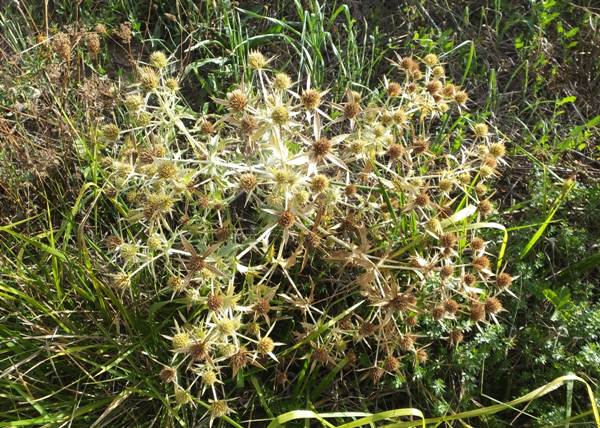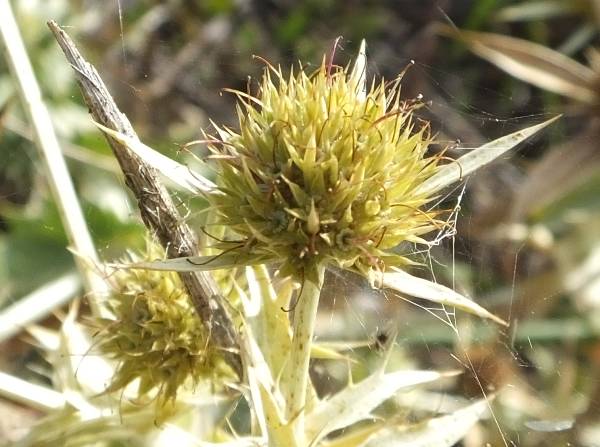Eryngium campestre - Field Eryngo
Phylum: Magnoliophyta - Class: Equisetopsida - Order: Apiales - Family: Apiaceae

A rare sight in Britain, Field Eryngo (also known as Watling Street Thstle) is a prickly member of the umbellifer family Apiaceae.
Description
The hairless pale-green ribbed stems branch frequently and are tipped with whitish globular flowers which, at 10 to 15 mm across, are much smaller than those of Sea Holly. The flower heads are backed by slender spiky bracts, and individual flowers have five tiny recurved petals. The slender-lobed palmate leaves have sharp spiny tips.

Distribution
In Britain this species is mainly confined to a few locations in the south of England, from the Westcountry across to East Anglia, with just the occasional record from Wales and northern/central England. Its occurrence beside the old Roman road known as Watling Street has led to the alternative common English name Watling Street Thistle.
On mainland Europe, Eryngium campestre is recorded from many central and southern countries including Germany, Holland and France.
Habitat
Very much a wildflower of disturbed wasteland and field margins, Eryngium campestre is a also found on dryish roadside verges and scrubby pastures, mainly on alkaline or neutral soils.
Blooming Times
In Britain, Field Eryngo can be seen in bloom between July and September. Further south in Europe the flowers can sometimes be seen as late as mid October.
Etymology
Eryngium, the botanical genus name, is thought to come from the Greek noun eryngion, which means Sea Holly. The specific epithet is in no doubt: campestre means 'of the sea'.
Similar Species
Sea Holly Eryngium maritimum has much larger bluish umbels and is much more common in Britain, notably in sand dunes and other coastal grassland habitats.
The pictures of Field Eryngo shown on this page were taken in southern France during October.

